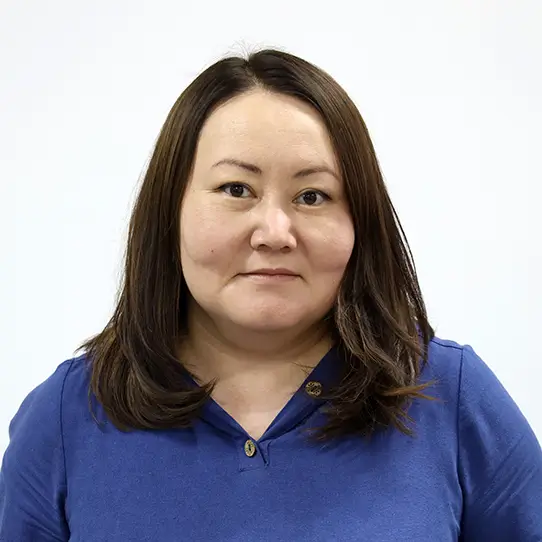I try to believe in the best. People help me with this. When you meet kind, strong-willed people, you get energized by them, it supports you.
— Sholpan, what brought you to the Angels of Freedom project?
— I was looking for ways to help people in need. I found information on the Internet, came to the first toloka and soon began to come more often. I have been a volunteer since January this year, and a coordinator in Astana since March.
— Has it become more difficult?
— It hasn’t become more difficult, on the contrary, it has become more interesting, because now I can do more. Previously, I only came to tolokas, now I manage their organization, participation in fairs, purchasing fabrics, and some other organizational issues in our city. All this takes time but when there is a goal, motivation and resources just come up. Systematic work makes you disciplined. Prior to that, I had no idea that I could cope with so much. Overall, I like being a project coordinator.
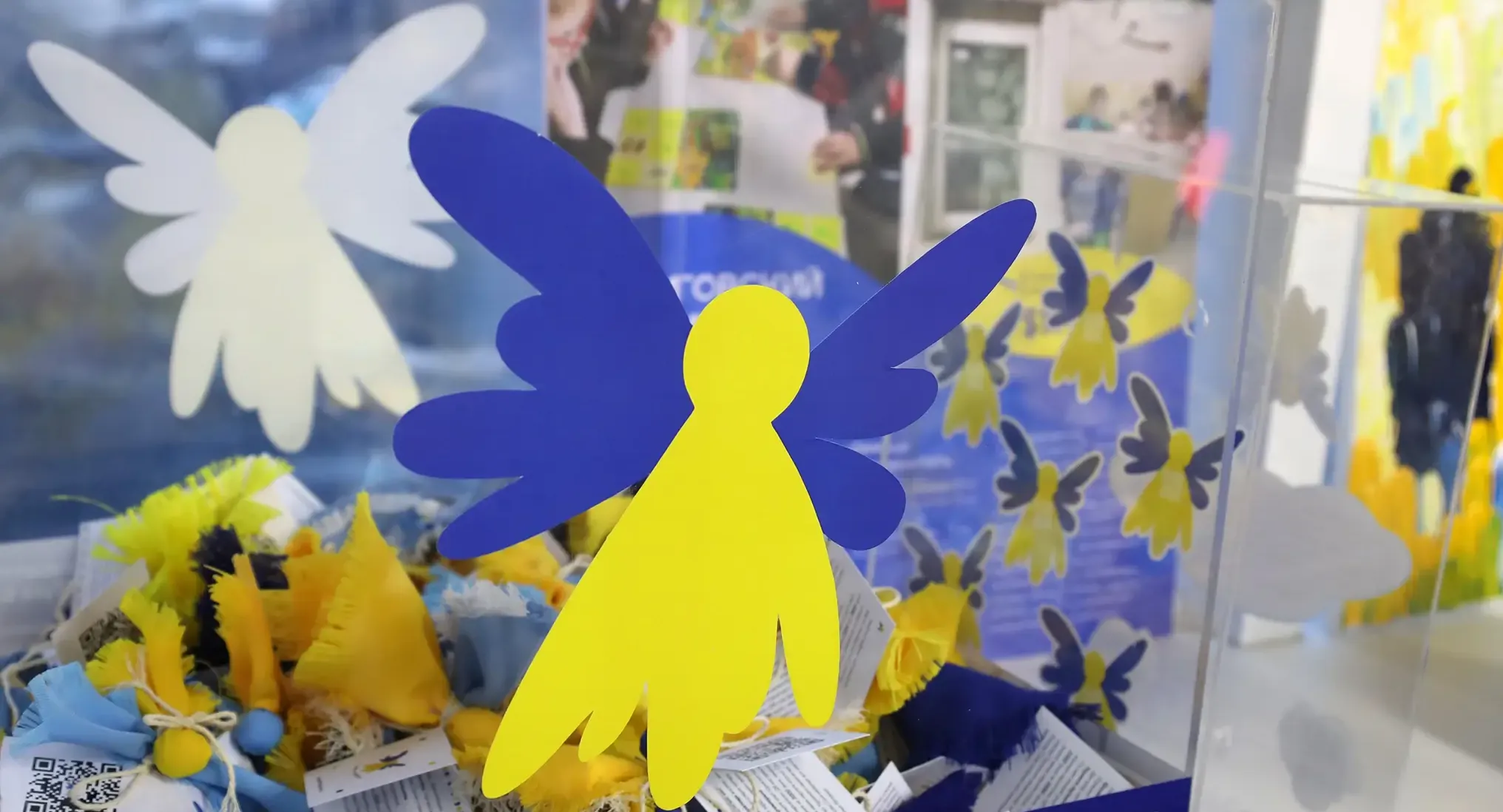
— Sholpan, did the news about the beginning of the war come as a surprise to you, or did you suspect that this would happen? May be, certain geopolitical developments were more obvious to you as a historian?
— The thing is that I, like many others, lived in my own world, focusing only on my work. My specialty is museum studies, and I was completely immersed in my favourite profession. The modern geopolitics are not within the scope of my scientific interest, I was out of the context of the current agenda. It is hard to follow all the news, you risk encountering a lot of unverified information, so I avoided this. I organized exhibitions, studied and taught art history. That is, I lived in my own world, full of creativity and interesting people. Therefore, the events that broke out a year ago were a great shock. Everything what was happening, as well as people’s reactions to the news, just pulled the rug from under my feet. For a long period, I was in depressed state which was impossible to overcome. Thinking back of this difficult period, I regret that I did not come to the project earlier. It will soon be one year old. It’s hard to be alone with your fears. I could have coped with these emotions better next to those who share them. I’m glad that I found people who understand.
— What was the most joyful moment during your time with the project? And which one was the saddest?
— Probably, when I found out that the construction works were completed at the two schools in Chernigov which we help; and that in April, the children went to school offline for the first time. This was a great event resulting from many months of our work. I can’t say that there were any sad moments. There were many touching ones, it is impossible to list them all.
— How many people usually come to tolokas in Astana?
— It differs. Both the volunteers who have been involved in the project for a long time and the new people come. An average of 10 to 16 people. I know that there are even more people who want to participate, but not everyone can combine volunteering with their commitments at work and at home.
— And what sort of people join you?
— At our meetings you can make friends with all sorts of different people. In addition to its main idea, which is real help to children, our project is attractive due to its people. It seems to gather amazing, kind, talented, very interesting people. I have not met so many wonderful people in one place for a long time (except, perhaps, in archaeological expeditions). We are all different in temperament and character, our members are a very multinational mix, but we are all united by one common cause, and we understand each other well.
I dream that we restore schools and kindergartens in peacetime. I want that time to come soon.
— What do people talk about at tolokas when they make “angels”?
— We try not to touch difficult topics. Toloka is a creative process. Motanka-dolls need to be made in a good mood with a positive attitude. Therefore, we try to discuss something pleasant, we have plenty of topics: we also talk about poetry, literature, cinema, photography, share stories from our lives, etc. We make jokes and laugh a lot because this is the best therapy.
— And what is the reaction of ordinary people passing by who find out why you are collecting donations for the first time?
— At fairs, people often go about their business without looking around. But as soon as they get to know that this is a humanitarian mission, it is help for Ukraine, help for the children, their eyes seem to focus, their behaviour changes, and from indifferent passers-by, they turn into congenial persons. So many people thank us for what we do and ask how else they can help. Moreover, some volunteers have learned about the project in such a way.
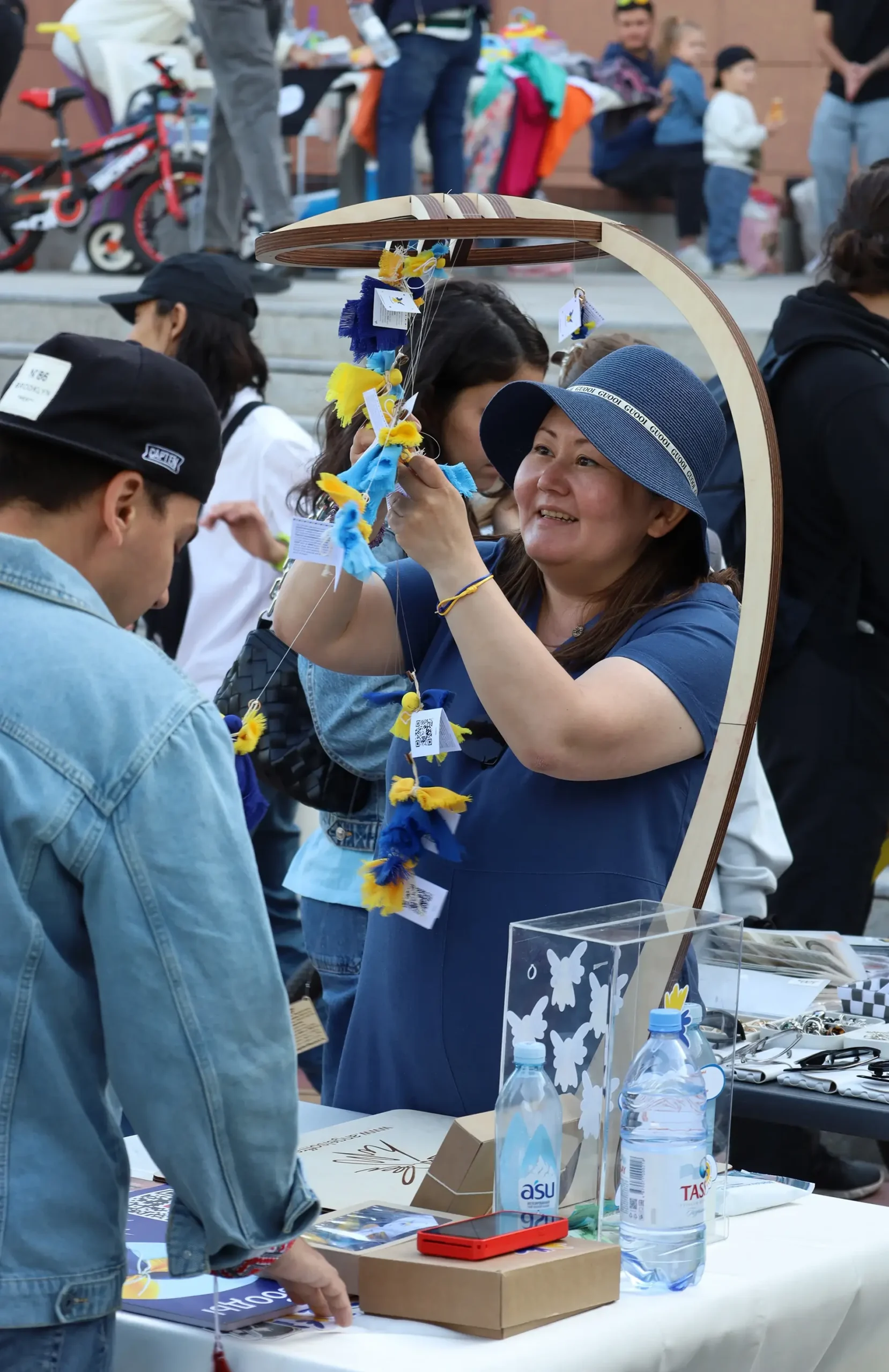
— What is the age of people who stop by your table more often? Can you draw a “portrait” of an average fairs’ participant?
— I can’t really say because I only took part in four fairs. But I don’t think that there is such a portrait. These are people of different age and nationality.
— What is the age of people who stop by your table more often? Can you draw a “portrait” of an average fairs’ participant?
— I can’t really say because I only took part in four fairs. But I don’t think that there is such a portrait. These are people of different age and nationality.
— Are there any basic tips that you give to new volunteers?
— The fairs are attended by those who have already taken part in tolokas, so they are familiar with the basic principles of our foundation. The main idea is to help children, restore schools, equip the bomb shelters. We are a humanitarian mission and do not accept any political content, we do not incite discord, we do not support any conflict.
In general, the strength of our project is that it is the most friendly, free environment where everyone can just be themselves. We tell the new coming volunteers how to make motanka-dolls, and, of course, about what we have already achieved and what remains to be done.
— How do you phrase for yourself the purpose of your activity here?
— At first, I just wanted to help, but I had no idea how else I could help besides making angels. Over time, I came to realise that the project is rather a complex structure and the number of administrative issues is increasing every day. Compassionate people in different towns take up the initiative, we find new friends, the project evolves. Therefore, the workload of the founders, coordinators of the project grew more and more. My task was to somewhat ease their burden. It’s easier than it seems, as they have already set up everything in Astana, so I just picked up the ready-made solutions. Starting everything in a new place from scratch is much more a difficult task, I admire our regional project coordinators.
Our common goal is to raise as much money as possible because there are so many schools and kindergartens that need help. We don’t limit ourselves with helping only Chernihiv. It all started with it, but now it is also Nikolaev. Further, we will proceed with other settlements and towns.
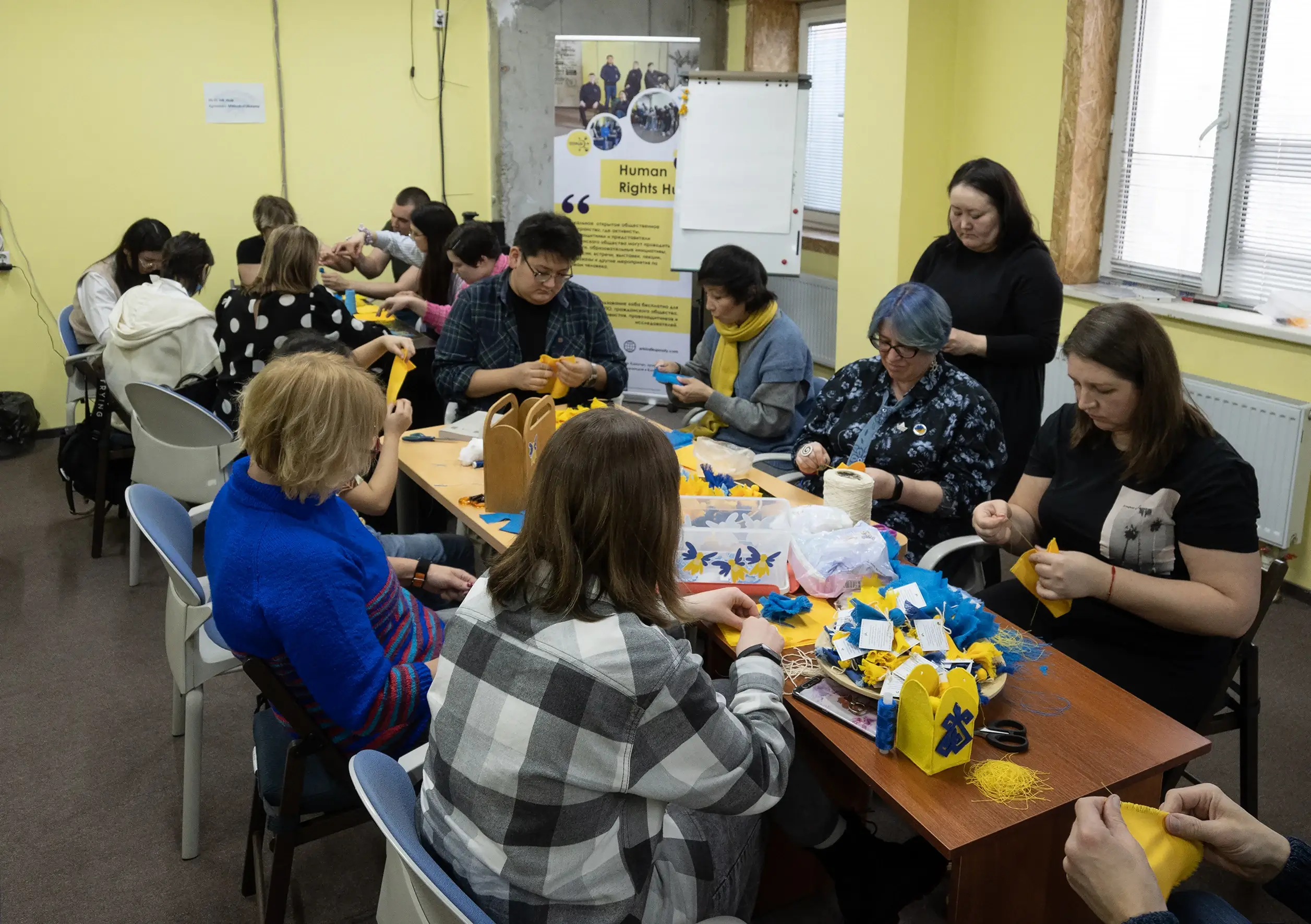
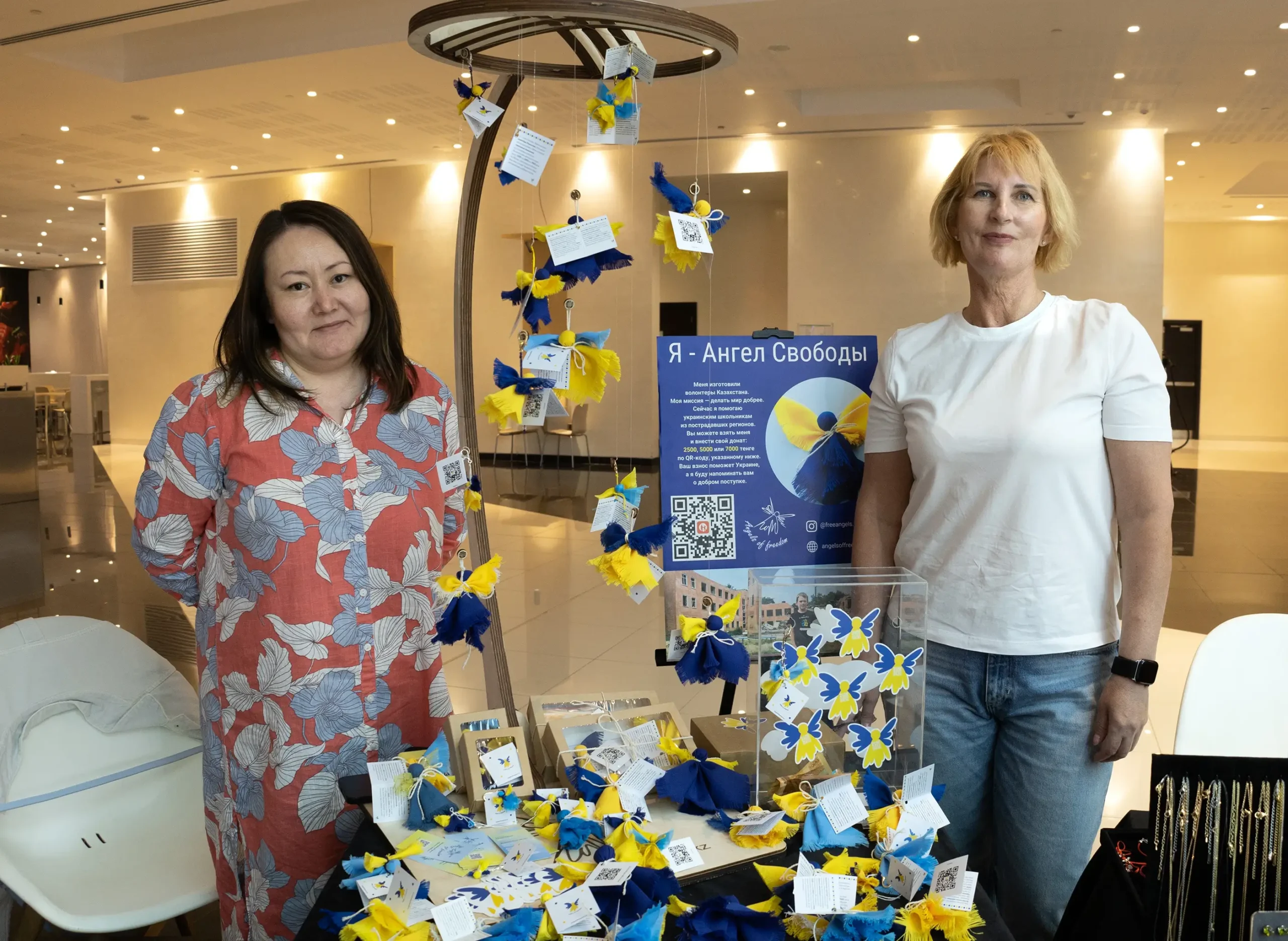
— How much did your participation in the project change you? And if it did, then how?
— Throughout 2022, I was very worried about all what is happening. And this, of course, changed me a lot. I was nearly in depression, and when I came to the project, I felt much better almost immediately. It seems that, emotionally, I became a more balanced person, calmer, more joyful. The Angels of Freedom project gives you the opportunity to be involved in an important good cause. And I’m very grateful for that.
— What events made biggest impression on you during your time with the project?
— It’s hard to choose because every meeting at the toloka or participation in the fair gives you a lot of positive emotions. In January, we organized a series of lectures. I really liked the lectures on the history of cinema by our volunteer Andrey Makushin. I have found many new friends here. My main impression is them.
— What are the nearest plans for the project’s further development in Astana? Do you have any new formats in mind?
— We always have a lot of ideas, but I will not disclose all the plans for the time being. In general, we would like to continue to uncover the human potential, because we have a lot of talented people, and each volunteer can contribute to the development of the project.
In addition to its main idea, which is real help to children, our project is attractive due to its people. It seems to gather amazing, kind, talented, very interesting people. I have not met so many wonderful people in one place for a long time (except, perhaps, in archaeological expeditions). We are all different in temperament and character, our members are a very multinational mix, but we are all united by one common cause, and we understand each other well.
— Haven’t you lost hope for the best — for peace — over the last year? What does fuel this hope?
— I try to believe in the best. People help me with this. When you meet kind, strong-willed people, you get energized by them, it supports you. I dream that we restore schools and kindergartens in peacetime. I want that time to come soon. There is a lot of destruction, and not only in Ukraine. Much has been destroyed in our lives. And we need to work on it.
— Please continue the phrase: “The Angels of Freedom project is…”
— Good people.
